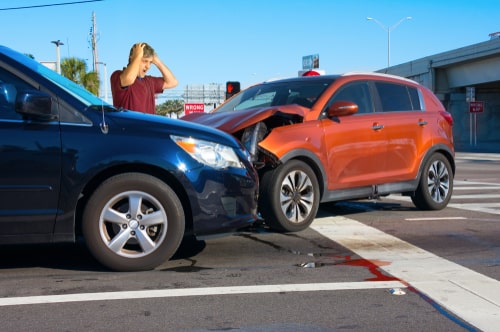Car accidents take place every single day. In many cases, it is obvious which driver was at fault but what happens when a seizure causes a driver to have an accident? What if an unforeseen heart attack causes them to lose control of their vehicle? When an unexpected medical emergency results in a traffic accident, the driver could be alleviated of liability under the sudden medical emergency doctrine.
What qualifies as a sudden medical emergency?
If you were injured in a car accident by a driver claiming they experienced a medical emergency, you need to speak with an experienced Virginia car accident attorney from Shapiro, Washburn & Sharp as soon as possible.
What Is the Sudden Medical Emergency Defense?
The sudden medical emergency doctrine is a defense that can be invoked to invalidate a claim of injury in the event of an unexpected and sudden medical emergency. In other words, the defendant would not be found negligent and, by extension, would not be held liable for any damages caused by the accident.
Claiming a Sudden Medical Emergency
The most vital factor in the use of this doctrine is determining whether the medical emergency was truly unforeseeable. In order for the defense to be valid, a judge and jury will need to establish that the driver had absolutely no way of predicting the medical emergency.
If the medical emergency that incapacitated the driver could have been anticipated based on their medical history, the sudden emergency medical defense would be invalidated.
True Sudden Medical Emergencies
Suddenly losing consciousness is frightening no matter where it happens. However, when it happens to someone behind the wheel, there are unique dangers to be considered. Any driver who experiences total unconsciousness might be able to use the sudden medical emergency defense. Some examples of conditions that could be undiagnosed and cause a blackout include:
- Strokes
- Heart attacks
- Seizures
- Syncope
- Certain diabetic conditions
Elements of Liability for Accidents Caused by Medical Emergencies
Any driver who undergoes a medical emergency will have to definitively prove they had absolutely no knowledge of the preexisting condition that led to the emergency. This means that the driver claiming the defense has the burden of proving their actions were not negligent. In claiming the sudden medical emergency defense, there are three elements that must be proven:
The Driver was Suddenly Incapacitated
The first element in proving an unforeseen loss of consciousness is how much time passed between the onset of the medical emergency and the collision. Although nowhere is an appropriate length of time specified in terms of minutes and seconds, the crash must have taken place immediately after consciousness was lost.
If it can be proven that the driver had enough time to take control of the situation, then it may be decided that the accident could have been prevented. This defense is also meritless if the driver’s condition exhibited warning signs that would have given them time to pull over. If the driver was aware of their condition and knew they should not be driving, then they would be found negligent because there is no suddenness about a known medical condition.
If the accident took place as soon as the driver experienced an abrupt and unanticipated loss of consciousness, they have a much stronger defense.
The Incapacitation Was Not Predictable and Was an Emergency
If you were involved in a collision caused by a seizure, the unpredictability and severity of the seizure will come into play. As mentioned above, the driver must have had absolutely no knowledge of the condition that led to the seizure. The doctrine must also be supported by their medical records. Considerations include:
- Did the driver require immediate emergency care?
- What diagnosis did the driver receive?
- Does their medical history indicate any type of foreseeable condition?
Even if a driver claims they experienced a seizure or other medical condition behind the wheel, the defense still requires them to provide documented proof. Just as time is a factor in the suddenness of a car accident, the driver’s treatment time and medical history are also critical factors.
By definition, an emergency requires immediate medical intervention. If the driver’s condition does not demand treatment directly following the crash, accident-related injuries notwithstanding, the sudden medical emergency defense is unlikely to fare well in court, making the use of medical records essential to the legitimacy of the defense.
The Incapacitation Caused a Total Loss of Control
The sudden medical emergency defense also requires the driver to prove that they were completely unconscious. This defense is employed under the assumption that the driver was not negligent, so a complete and sudden loss of consciousness must be the reason the driver lost control of their vehicle.
Car accidents involving strokes, seizures, heart attacks, and other medical emergencies can make establishing liability difficult. If you were involved in a Virginia car accident caused by a sudden medical emergency, contact the experienced Virginia car accident lawyers at Shapiro, Washburn & Sharp. We offer free consultations to all prospective clients. Schedule yours today by filling out our easy online contact form or calling (833) 997-1774.
